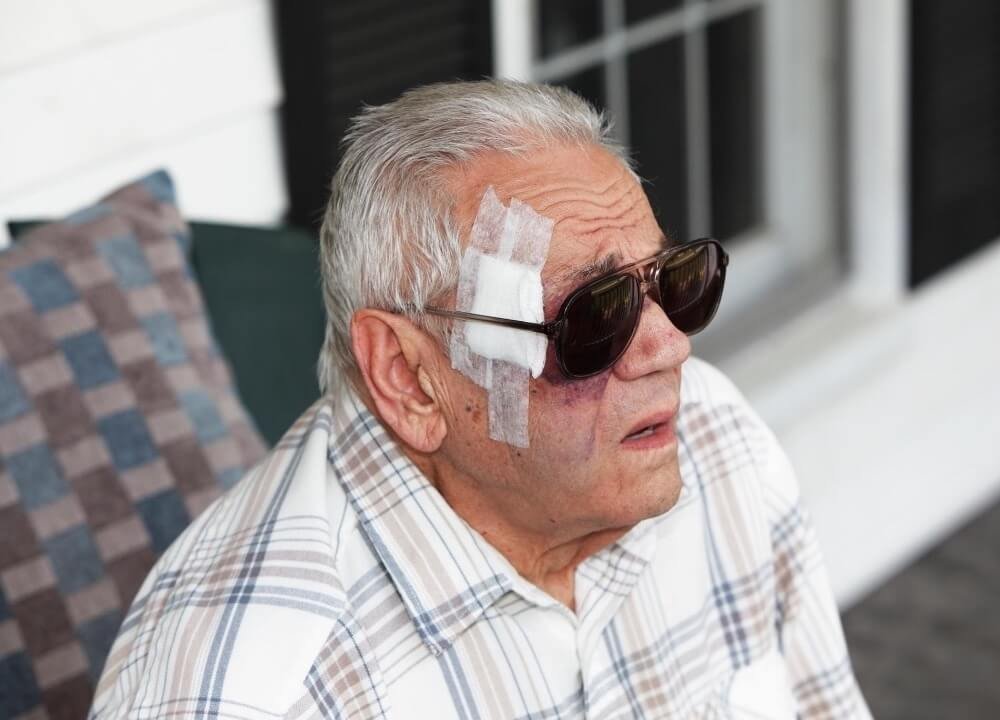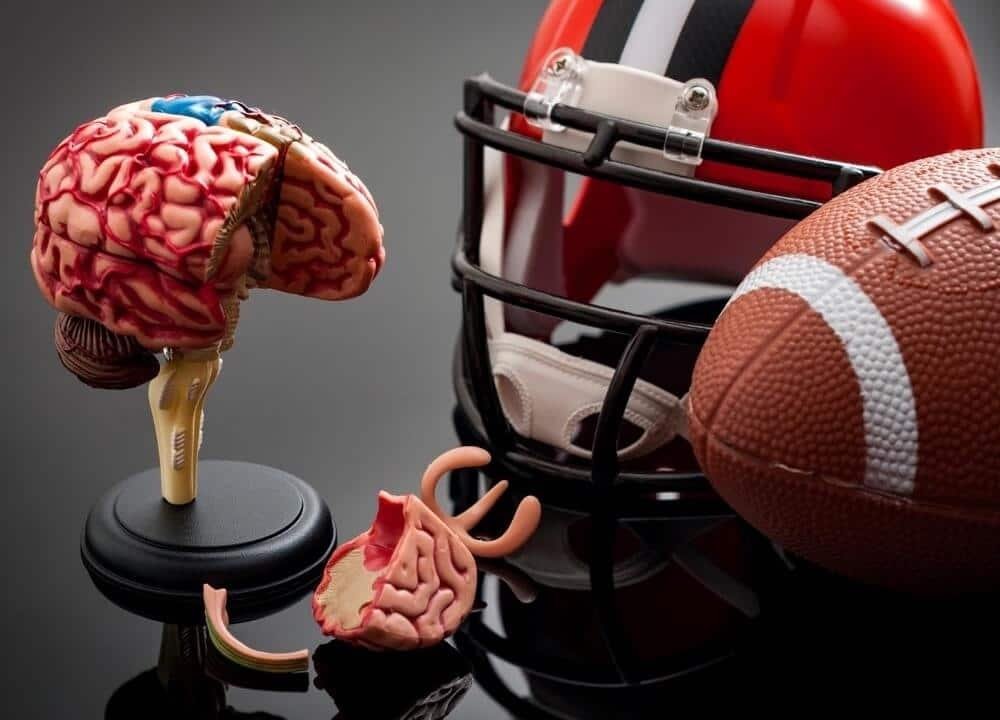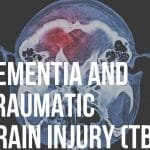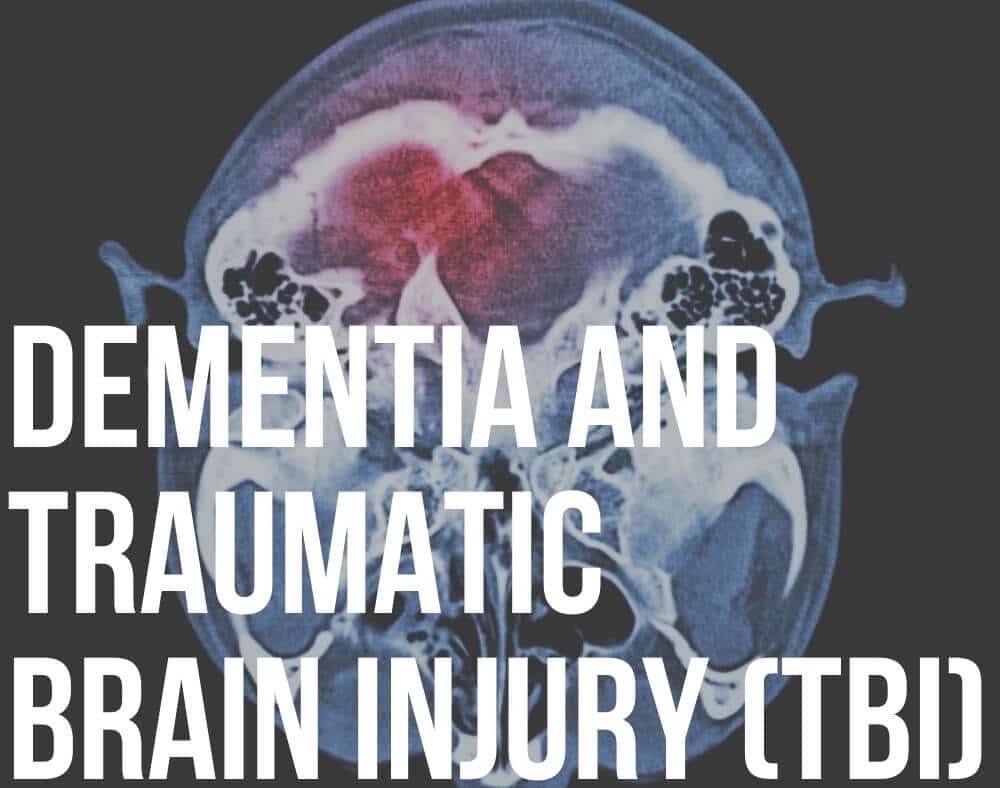Numerous studies have been done to find out the connection between dementia and head injury.
This is after suspicion that TBI (traumatic brain injury) which is usually caused by head injury normally disrupts the normal functions of the brain which can affect someone’s cognitive abilities such as thinking and learning skills.
Contents
Can a head injury make dementia worse?
Keep in mind that it is not everyone who gets a head injury will end up developing dementia.
The immediate effect of a head injury can induce symptoms that people with dementia also exhibit.
These can include things memory loss, confusion, changes in speech, personality and vision.
They can go away quickly, last for years, or never clear up depending on the severity of the injury.
Causes of Head Injury

Some of the most common causes of head injuries that can lead to traumatic brain injury include:
- Car accidents
- Being struck on the head by objects
- Bullet wounds
- Falls
- Assault
- Injuries that penetrate the brain and skull
- Blast injuries, etc.
The above causes the brain to jolt violently in the brain.
Each of them normally has different outcomes for the people they impact.
Some types of TBI can increase the risk of developing various types of dementia including Alzheimer’s years after the injury took place.
Reasons Head Injury may Result in Increased Dementia Risk

There are a couple of mechanisms that explain the link between dementia and head injury.
One of them is that brain injury is known to accelerate or induce the accumulation of abnormal proteins.
This then leads to the death of neurons that are associated with some dementia types like Alzheimer’s disease.
There is also a possibility that trauma leaves the brain more vulnerable to other types of injuries.
Research that has been done on Dementia and Head Injury

As mentioned earlier, researchers have been trying to uncover the link between head injury and increased dementia risk.
Below are examples of research that has been done on this course.
Umea University Study
A study done at the Umea University in Sweden confirms that traumatic brain injury is one of the dementia risk factors.
It was after observing over three million people aged 50 years and above. This was published on 30th January 2018 in the PLOS medical journal.
It indicated that the risk of dementia diagnosis was highest during the first 12 months after the injury.
During this period, individuals with traumatic injuries are 4-6 times likely to get a positive dementia diagnosis when compared to the ones who do not have a traumatic brain injury.
The study also concluded that a traumatic brain injury or a concussion can increase the risk of dementia even 3 decades later.
Another study published in the Journal of Neurology discovered that a history of traumatic brain injury may increase by two or more years the age of onset for cognitive impairment.
Other studies also had similar results indicating that traumatic brain injury causes a significant risk when it comes to cognitive decline in the elderly.
It is also associated with earlier onset of in people with Alzheimer’s disease and mild cognitive impairment.
Increased Risk in Boxers
Some research on dementia and head injury also reveals that boxers have an increased risk of chronic traumatic encephalopathy (CTE) which is a type of dementia.
CTE symptoms include confusion, memory loss, impulse control problems, impaired judgment, anxiety, aggression, suicidality, and progressive dementia.
The symptoms may show up after years or decades of traumatic brain injury.
This is mostly due to the number of rounds that the professional boxers rather than the times he or she was knocked out.
This implies that when someone suffers mild traumatic repeatedly, they are also at increased risk of getting dementia even when the injuries did not cause unconsciousness.
Researchers are yet to uncover whether CTE is likely to occur after several traumatic brain injuries, a large number of mild traumatic brain injuries, or some other forms of heard trauma patterns.
Brain Issues in other Professional Athletes

Several studies have also been done focusing on professional athletes including boxers, football players, and mixed martial arts fighters.
Most have found a connection to serious brain troubles later in life. These include dementia or CTE.
A UCSF study also reported that the risk of dementia doubles after a person suffers a concussion.
The researchers tracked over 330,000 veterans while trying to find the link between dementia and head injury.
After adjusting sex, age, education, race, and other health conditions, they stated that without loss of consciousness, people who had a concussion were 2.36 times likely to get dementia.
The number was higher for people who lost consciousness at 3.77 times higher.
The research focused on veterans and members of the general public and the findings were similar for both groups.
There is still no evidence that one mild traumatic brain injury can increase the risk of developing dementia.
Nonetheless, there is emerging evidence that states that repeated mild traumatic brain injuries lead to a greater risk of CTE.
Closing Thoughts
More research still needs to be done concerning dementia and head injury.
Scientists are working to establish the link between traumatic brain injury and the increased risk of dementia.
Based on the existing evidence, it is highly recommended that people protect their heads when participating in activities that can lead to head injury.







